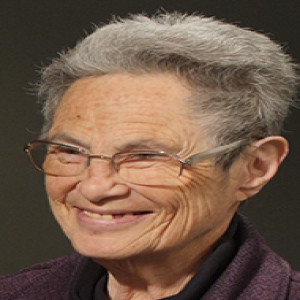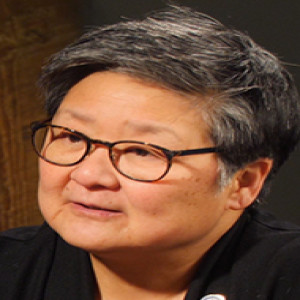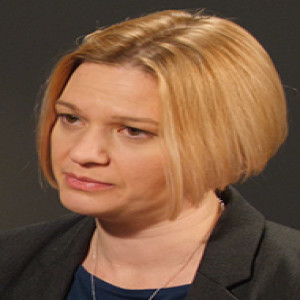Episodes

Thursday Apr 25, 2019
Susannah Pierce - LNG Canada and First Nations Agreements
Thursday Apr 25, 2019
Thursday Apr 25, 2019
Ep 240
Guest: Suzannah Pierce
Headline: LNG Canada and First Nations agreements
When LNG Canada announced its final decision to go ahead with the massive LNG facility in Kitimat, it not only announced the largest industrial project in BC history – it also demonstrated that industry and First Nations can find agreement in energy projects.
The project meets a wide range of objectives that include, but are not limited to, the supply of natural gas to Asia which needs it to replace coal in the production of electricity. Thousands of construction jobs will be created and perhaps the most important component of the project is the model of engagement and agreement between natural resources producers and First Nations.
The Haisla, where the plant will be built, and the elected councils of 20 First Nations that will host the pipeline that will deliver gas from the northeast of the province to the LNG plant in Kitimat had to work together to develop long-term agreements. Chief Crystal Smith of the Haisla says this agreement provides jobs and opportunities for entrepreneurs and resources to the community that allow her nation to take control of their destiny.
We invited Suzannah Pierce of LNG Canada to join us for a Conversation That Matters about the opportunity the liquified natural gas project offers to the Haisla and the other partner First Nations, BC and Canada.
Simon Fraser University’s Centre for Dialogue presents Conversations That Matter. Join veteran Broadcaster Stuart McNish each week for an important and engaging Conversation about the issues shaping our future.
Please become a Patreon subscriber and support the production of this program, with a $1 pledge https://goo.gl/ypXyDs

Friday Apr 19, 2019
Roslyn Kunin - BC's Economy in 2030
Friday Apr 19, 2019
Friday Apr 19, 2019
Ep 239
Guest: Roslyn Kunin
Headline: Looking ahead to 2030
For more than 30 years, Roslyn Kunin has been accurately predicting the future of the BC economy. We asked her to share insights she has gleaned from a recent report that she produced for one of her clients.
The good news is the BC economy looks robust. The bad news is that the economy is so rosy, there may not be enough people to fill all the jobs. And she's quick to point out that technology won't be coming to the rescue just in the nick of time either. In fact, she says technology is part of the challenge because it creates even more jobs.
We ask the eminent economist Roslyn Kunin to join us for a conversation that matters about British Columbia's blue sky economy.
Simon Fraser University’s Centre for Dialogue presents Conversations That Matter. Join veteran Broadcaster Stuart McNish each week for an important and engaging Conversation about the issues shaping our future.
Please become a Patreon subscriber and support the production of this program, with a $1 pledge https://goo.gl/ypXyDs

Friday Apr 19, 2019
Cindy Preston and Gina Gaspard - Do your meds cooperate with one another?
Friday Apr 19, 2019
Friday Apr 19, 2019
Ep 238
Guest: Cindy Preston & Gina Gaspard
Headline: Do your meds cooperate with one another?
It’s called polypharmacy – that’s when you are taking too many medications and those medications start competing with one another to the detriment of your health. It’s a problem. Let’s say you go to the doctor, complain about an ache or a pain, indigestion or a reaction to a drug you’re already taking and then the doctor issues a new prescription.
Not to point the finger at the doctor, because a lot of patients don’t reveal the extent of the medications they’re taking. They almost never talk about the vitamins they’re taking or about their marijuana use – either for pain or recreational reasons or illegal drugs. And it doesn’t stop there; did you know people share drugs, “as in I’m taking this and it works for me, here, try one”? Doctors don’t hear those stories.
There are a host of reasons why people don’t have frank conversations with their primary health care provider: embarrassment, a fear of losing face, a lack of understanding about drug interactions and a worry about challenging the authority of their doctor.
And, while I hate to add this in – but I have to in this case – that is, add in the experiences indigenous peoples have with the Canadian medical system: a system that many say does not respect them or their perspectives on health, wellness and prevention.
For this episode we invited two members of the team at the First Nations Health Authority, pharmacist Cindy Preston and nurse Gina Gaspard to join us for a Conversation That Matters about the Coyote Medicine Story and how it can help all of us address an important health care challenge.
I would also like to acknowledge that this program was recorded on the traditional territories of the Squamish, Musqueam and Tsleil-Waututh First Nations.
Simon Fraser University’s Centre for Dialogue presents Conversations That Matter. Join veteran Broadcaster Stuart McNish each week for an important and engaging Conversation about the issues shaping our future.
Please become a Patreon subscriber and support the production of this program, with a $1 pledge https://goo.gl/ypXyDs

Friday Apr 05, 2019
The Rules Organ Donors Need to Know
Friday Apr 05, 2019
Friday Apr 05, 2019
Ep 237
Guest: Hailey Cheema
Headline: Organ Donation
The impact we make on life is determined by our responses to the events that affect us. Do we crumble, do we rise up, do we determine to change the way of the world to improve the lives of others?
That brings us to our guest today, who as a teenage girl, experienced the slow deterioration of her grandfather’s life due to failing kidneys. Sadly his life was cut shorter than it needed to be, robbing Hailey, her family and all of us of the incredible contributions he still wanted to make.
In response, Hailey was determined to change the lives of thousands of people affected with kidney disease. She became an organ transplant crusader. She started by talking to anyone who would listen. Now she is leading the charge to introduce the issue of organ transplantation into the high school health curriculum.
She says it is important that we all appreciate the gift of organ transplantation along with the legal obligations required to ensure your wishes are fulfilled. For example, did you know that your family can deny the donation of your organs upon your death even though you have completed an organ donation card?
We invited Hailey Cheema to join us for a Conversation That Matters about the myriad details associated with organ transplantation.
Simon Fraser University’s Centre for Dialogue presents Conversations That Matter. Join veteran Broadcaster Stuart McNish each week for an important and engaging Conversation about the issues shaping our future.
Please become a Patreon subscriber and support the production of this program, with a $1 pledge https://goo.gl/ypXyDs

Friday Apr 05, 2019
The Lifesaving Benefits of Community Medicine
Friday Apr 05, 2019
Friday Apr 05, 2019
Ep 236
Guest: Nancy Kotani
Headline: Community Paramedicine
Life on the frontier in British Columbia is fantastic so long as you’re healthy. Get injured or worse suffer from a chronic condition and up until now, health care was usually a sirens-blaring ambulance trip to a hospital more than 100 kilometers away.
It was a problem – a big problem – for many reasons. Then one day, a solution emerged: members of the Ambulance and Paramedics Union came up with a way of creating sustainable employment of ambulance paramedics in remote communities and at the same time dramatically improve the well-being of the people they served.
The community paramedicine program came to life and now provides high-level care for elderly patients in 99 remote and rural communities throughout the province. The benefits include but are not limited to: aging in place for seniors; families remain united; health outcomes are improving; and paramedics are now assured a stable job.
This is a made-in-BC solution to a BC health care challenge – a remarkable success story.
We invited Nancy Kotani of the Chief Transformation Office of BC’s Emergency Health Services to join us for a Conversation That Matters about the remarkable success story that is improving lives in remote and rural communities in BC.
Simon Fraser University’s Centre for Dialogue presents Conversations That Matter. Join veteran Broadcaster Stuart McNish each week for an important and engaging Conversation about the issues shaping our future.
Please become a Patreon subscriber and support the production of this program, with a $1 pledge https://goo.gl/ypXyDs

Thursday Mar 21, 2019
Bethany Edmunds - Technology - The Great Equalizer
Thursday Mar 21, 2019
Thursday Mar 21, 2019
Ep 235
Guest: Bethany Edmunds
Headline: Technology: The Great Equalizer
We hear about technology all the time to the point where the focus has shifted from good for us to bad. Tech, both loved and feared: is it taking over our lives? It has reams of data on us, it knows our habits and predicts what we want to buy or do next.
We’re asking ourselves: are we slaves to our devices? Search the topic, “Has Technology Ruined Our Lives?” and you’ll be bombarded with search page after search page connecting you to articles, videos and talks all telling you that technology has robbed us of the joy of life.
Not so fast, says Bethany Edmunds, a computing sciences instructor, who says technology has changed the lives of all of us for the better and even more so for the disenfranchised. Technology, she points out, is the great equalizer – first in its ability to navigate life for everyone and especially for those with challenges. At the same time it has also taken away physical barriers to jobs and careers.
We invited Bethany Edmunds to join us for a Conversation That Matters about how technology is accessible coupled with a path tech careers for non-nerds – a path she says is within our reach.
Simon Fraser University’s Centre for Dialogue presents Conversations That Matter. Join veteran Broadcaster Stuart McNish each week for an important and engaging Conversation about the issues shaping our future.
Please become a Patreon subscriber and support the production of this program, with a $1 pledge https://goo.gl/ypXyDs

Thursday Mar 21, 2019
John Gastil - Honesty in Referendums
Thursday Mar 21, 2019
Thursday Mar 21, 2019
Ep 234
Guest: John Gastil
Headline: Honesty in Referendums
Referendums and initiatives are strange instruments in a democracy. They present as opportunities for the public to make a decision on a matter of great importance. In some cases, they are fundamental to our system of governance; at other times they are so red hot, the government simply doesn’t want to own the issue.
In each case, you as the voter are asked to make a decision, one that will change laws. How, then, do you make an informed decision? Where do you get information that is detailed yet comprehensible? Who can you trust?
Take electoral reform in BC for example. In 2018, it was a mess. The authorship of the question was poorly crafted, it was never appropriately explained and the whole thing was all done in a rush. Then the campaigns of interested parties began. The “never in a million years” side did a great job of exploiting the poor authorship of the question and instilled distrust in the entire process.
The level of discourse only went down and the actual merits of electoral reform virtually disappeared as opposing sides went tooth and nail. The losers in this titanic battle were voters who were deprived of a balanced and thoughtful exchange of the facts or the merits of the issue.
So, what if we could establish a method of examining the facts in a thoughtful and deliberative way? What would that look like?
Enter deliberative democracy, a communication model that would mirror the process of weighing the facts, the way a jury does in a court of law. It is possible in small groups and it could potentially serve as a guideline for future referendums.
We invited John Gastil of Penn State University to join us for a Conversation That Matters about a way of creating a structure and process that will allow voters to make informed decisions on referendum questions.
Simon Fraser University’s Centre for Dialogue presents Conversations That Matter. Join veteran Broadcaster Stuart McNish each week for an important and engaging Conversation about the issues shaping our future.
Please become a Patreon subscriber and support the production of this program, with a $1 pledge https://goo.gl/ypXyDs

Thursday Mar 21, 2019
Marc Rauch - Ethanol the Forgotten Alternative Fuel
Thursday Mar 21, 2019
Thursday Mar 21, 2019
Ep 233
Guest: Marc Rauch
Headline: Ethanol - The Forgotten Alternative Fuel
Ethanol – the clean alternative fuel that got shoved aside through a series of unfortunate events. It was THE fuel the Model T was designed to burn. It was THE fuel that all auto manufacturers designed engines to run on. It burned far cleaner than kerosene, cleaner than oil, it was in demand and it was abundant.
The US government, however, saw it as a cash cow when it was in need of a tax plan that would help pay for the Civil War – a tax that increased the price of ethanol to more than $2 in 1864, kerosene was taxed at 10 cents. Then in 1920, prohibition banned the production of ethanol for any use because it is alcohol.
Despite burning cleaner, despite solving what is known as engine knock and despite cleaner emissions, ethanol has languished as a fuel. It’s a solution that is readily accessible and frequently overlooked.
Marc Rauch, a car lover, Vice-President of the Auto Channel and an accidental environmentalist is leading the charge to invigorate a passion for ethanol, a fuel he says “is the answer we’re looking for. It’s the answer to our energy needs, it’s the answer to self-sufficiency, it’s the environmental solution that already exists.”
We invited Marc Rauch to join us for a Conversation That Matters about a why ethanol gets so little respect as a fuel and why we need to learn to love it.
Simon Fraser University’s Centre for Dialogue presents Conversations That Matter. Join veteran Broadcaster Stuart McNish each week for an important and engaging Conversation about the issues shaping our future.
Please become a Patreon subscriber and support the production of this program, with a $1 pledge https://goo.gl/ypXyDs

Thursday Mar 21, 2019
Stephen Garrett - On Death and Dying
Thursday Mar 21, 2019
Thursday Mar 21, 2019
Ep 232
Guest: Stephen Garrett
Headline: On Death and Dying
“Death the Final Stage of Growth” by Elisabeth Kubler-Ross details the fact that we are a death-denying society. That may be the case but as Stephen Garrett points out, there are more than 900,000 people in British Columbia over the age of 65 who are going to die – and pretty soon.
Garrett says, “We’re woefully under-prepared. We’re under-prepared emotionally, psychologically and sociologically for the inevitable.” He says that means people are going to be angry, scared, alone and frequently unattended to by health care services that will be overwhelmed.
He has a clear idea about you can do to come to grips with passing on and doing so in a responsible manner. Coming to grips with death, he says, “is one thing. Being prepared emotionally, financially, legally and attending to your health needs – well, that’s another and it’s your responsibility to address these issues.”
We invited Stephen Garrett of the Memorial Society to join us for a Conversation That Matters about heading off over the horizon without regrets and having your affairs in order.
Simon Fraser University’s Centre for Dialogue presents Conversations That Matter. Join veteran Broadcaster Stuart McNish each week for an important and engaging Conversation about the issues shaping our future.
Please become a Patreon subscriber and support the production of this program, with a $1 pledge https://goo.gl/ypXyDs

Thursday Mar 21, 2019
Jamie Levchuk - why Rugby 7's are so much fun
Thursday Mar 21, 2019
Thursday Mar 21, 2019
Ep 231
Guest: Jamie Levchuk
Headline: Why are Rugby Sevens so much fun
The Rugby Sevens are coming. Look out and get ready to have fun.
The Sevens, as they are affectionately known, are a hot sports entertainment property. The game is a shortened and intense version of Rugby. While the Sevens look like rugby, that’s because there are players attempting to move the ball down the field and across the goal line, utilizing the same rules as the full blown game on the same field, but that’s where the comparison ends.
The Sevens condense everything from the number of players per team – seven – to the number in a scrum, three per team, and just five substitutes. There are two seven-minute halves and everything on the field happens faster. When one game is over, the other starts. It’s a snap, snap, snap tournament.
The fun seeps off the field and into the stands. Fans dress in costumes, wave flags, jump up and down, paint their faces and thrill in the excitement both on the field and in the seats.
We invited Jamie Levchuk, the managing director of the HSBC Canada Sevens to join us for a Conversation That Matters about the sporting phenonium that is sweeping the globe.
Simon Fraser University’s Centre for Dialogue presents Conversations That Matter. Join veteran Broadcaster Stuart McNish each week for an important and engaging Conversation about the issues shaping our future.
Please become a Patreon subscriber and support the production of this program, with a $1 pledge https://goo.gl/ypXyDs

